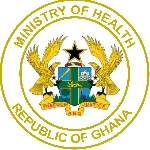O/R: Rampant refuse dumping, open defecation to be tackled to stem typhoid surge
 Cynthia Sekyere, Oti Regional Environmental Health Officer
Cynthia Sekyere, Oti Regional Environmental Health Officer
The Oti Region has recorded a sharp increase in typhoid fever cases, with figures rising from 10,233 in the second quarter to 22,261 cases as of August 28, 2025, according to the Ghana Health Service (GHS).
The Oti Regional Environmental Health Officer, Madam Cynthia Sekyere, described the situation as a major public health concern that required urgent intervention from government and development partners.
She identified lack of potable water and poor environmental sanitation practices as the leading causes of the outbreak.
Communities around the Volta Lake, particularly in the Krachi West and Krachi East districts, have been the hardest hit.
"Some residents dump refuse indiscriminately and defecate openly without proper sanitary facilities. When it rains, these waste materials are washed into the lake, contaminating the very water people depend on," Ms Sekyere explained.
As an interim measure, the Regional Health Directorate has moved to intensify public health education, urging residents to boil or treat water with chlorine before use to reduce the risk of contamination.
Beyond water and sanitation challenges, inadequate law enforcement was also cited as a contributing factor. In 2024, only 19 court summons were issued to sanitation offenders, with just eight successfully executed.
Ms Sekyere noted that this had emboldened many residents to continue flouting environmental health regulations.
To address this, 21 trained environmental health officers have been inaugurated to strengthen enforcement across municipal and district assemblies in the Oti region. The team will rely on the Public Health Act, the Criminal Code, and local government by-laws to ensure compliance with sanitation standards.
Additionally, the Oti Regional Coordinating Council has launched house-to-house inspections aimed at improving sanitation at the community level. Ms Sekyere stressed that the exercise was not meant to intimidate residents but to safeguard public health.
"We are not targeting anyone or using erratic measures. Our goal is to help communities adopt safe practices, and we urge residents to cooperate and provide us with accurate information," she noted.
Calling for urgent government and non-governmental support, the Oti Regional Environmental Health Officer emphasised the need for investment in safe drinking water infrastructure to tackle the root cause of the problem.
"We lack potable water, and this has contributed to the high number of typhoid cases. We appeal to government and NGOs to come to our aid. This situation requires immediate intervention," she said.
The rising typhoid figures in Oti Region highlight the pressing need for improved sanitation infrastructure, strict law enforcement, and sustainable access to clean water to safeguard public health.
Source: classfmonline.com/Solomon
Trending News

Wontumi and others charged over illegal mining linked to Akonta Mining Limited
11:54
NIA begins Ghanacard distribution for children aged 6 to 14
09:17
Ghana Youth Technical Training Initiative: Labour Ministry, UAE-based CG Technical Services FZ-LLC sign MoU
18:59
MP supports SHS students with trunks and mattresses
03:13
Foreign Affairs Minister presents diplomatic passports to five distinguished Ghanaians
08:56
Health Ministry launches 2025 Breast Cancer Awareness Month
14:14
Prisons Service Director-General cautions gov't to prioritise prisoner needs for the sake of 'serious public safety'
18:22
Mahama honours UDS football team for historic World University Games victory
16:53
Bryan Acheampong: “I am for power that works for the people”
08:53
Galamsey: President Mahama announces launch of RCMSD to restore degraded lands
20:17




